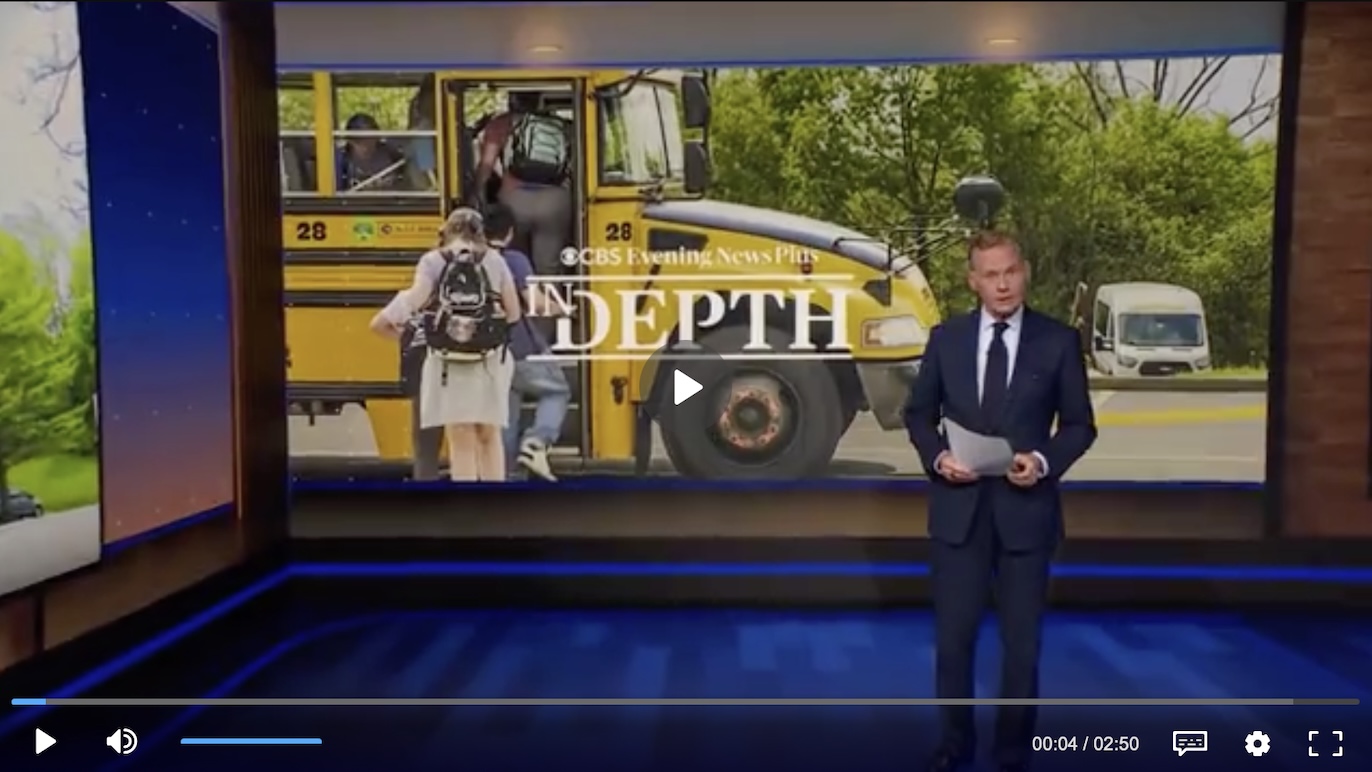High School Counselor Week
Weekly stories, facts, trends, and other information from around the country
August 21, 2025
32 colleges accused of using early decision to drive up costs
Higher Ed Dive – August 11, 2025
Almost three dozen selective colleges are facing an antitrust lawsuit that alleges they use early decision admissions to reduce competition and financial aid packages for students. The lawsuit argues that early decision admissions — a college application option that ostensibly binds a prospective student to enroll if they receive an acceptance offer — allows colleges to artificially decrease competition, charge higher tuition rates and offer less financial aid. Also name as defendants were two college application platforms, Common App and Scoir, as well as the Consortium on Financing Higher Education, a coalition of selective liberal arts colleges that share information. All 32 defendant colleges either are or have been members of CFHE. In addition to damages, the lawsuit is seeking a permanent block on the defendants’ use of early decision admissions.
Trump Orders Colleges to Prove They Don’t Consider Race in Admissions
Education Week – August 8, 2025
Colleges will be required to submit data to prove they do not consider race in admissions under a new policy ordered Thursday. In 2023, the Supreme Court ruled against the use of affirmative action in admissions but said colleges may still consider how race has shaped students’ lives if applicants share that information in their admissions essays. Trump is accusing colleges of using personal statements and other proxies to consider race, which conservatives view as illegal discrimination. The memo directs Education Secretary Linda McMahon to require colleges to report more data “to provide adequate transparency into admissions.” The National Center for Education Statistics will collect new data, including the race and sex of colleges’ applicants, admitted students, and enrolled students. It is unclear what practical impact the executive order will have on colleges.
‘State-driven censorship’: new wave of book bans hits Florida school districts
The Guardian – US Edition – August 16, 2025
The Republican-dominated state, which has already had the highest rate of book bans nationwide this year, is continuing to censor reading materials in schools, bowing to external pressures in an effort to avoid conflict and government retaliation. The books taken off the school shelves included The Diary of Anne Frank and What Girls Are Made of by Elana K Arnold. None of them were under formal review by the district, and they hadn’t been flagged by local parents as potentially inappropriate. Parents with children in the school system even had the opportunity to opt their children out of a particular reading, without removing them from the class for everyone.
 Welcome back, Class of 2026! – Your fall to do list.
Welcome back, Class of 2026! – Your fall to do list.Post – August 20, 2025
College Advice & Timely Tips with Lee Bierer
The quiet ban that could change how AI talks to you
Fast Company – August 13, 2025
With millions of people turning to AI for advice, chatbots have begun posing as free, instant therapists—a phenomenon that, right now, remains almost completely unregulated. In the vacuum of regulation on AI, states are stepping in to quickly erect guardrails where the federal government hasn’t. Earlier this month, Illinois’ governor signed a bill into law that limits the use of AI in therapy services. A Nevada law blocks AI chatbots from representing themselves as “capable of or qualified to provide mental or behavioral healthcare.” The law also prevents schools from using AI to act as a counselor, social worker, or psychologist, or from performing other duties related to the mental health of students. Earlier this year, Utah added its own restrictions around the mental health applications of AI chatbots. The risks are serious. The American Psychiatric Association and others have called for federal regulation, citing numerous instances where chatbots marketing themselves for therapy stigmatized users who were dealing with serious mental health issues, or issued responses that could be inappropriate or even dangerous.
Are High School Counselors Encouraging AI for College Applications?
EdSurge – July 24, 2025
School counselors Stephanie Nelson and Richard Tench, while hundreds of miles apart, give their rising seniors the same assignment when asked for a letter of recommendation: Take a “brag” sheet, fill it out with challenges they’ve overcome or accomplishments they’re particularly proud of, and give it back to the counselors to help guide their writing. It’s a common counseling technique. And what is also catching on: Counselors then plug those student achievements into a generative AI tool to help compose the letter of recommendation. For counselors who are seeing rising numbers of students, AI tools could slightly lighten their own load. Opinions are mixed, and the usage should come with guardrails. Tench and Nelson both say they are upfront about their use of AI and expect the same of their students, repeatedly stating the best usage is to help brainstorm or fine-tune ideas. Each expert also gave the reminder to check first with both high school and college AI policies. Colleges are mixed on allowing students to use AI in their applications, with some encouraging it while others outright ban its usage.
CDC launches new national campaign to tackle mental health, substance use among teens
ABC News – August 5, 2025
he Centers for Disease Control and Prevention (CDC) launched a new campaign on Tuesday aimed at tackling mental health and substance use among teens ahead of the upcoming school year. The federal campaign, entitled Free Mind, aims to provide teens and their parents or caregivers with “”resources and information about substance use, mental health and the connection between the two.”” The efforts revolve around the messaging that “”drugs and mental health don’t mix”” according to the landing page of the new campaign on the CDC’s website.
7 ways adults can better support teen mental health
Westminster Window (CO) – July 30, 2025
At a recent statewide mental health summit, educators, psychologists and youth leaders made one thing clear: if adults want to protect teen mental health, they need to change how they listen, respond and show up. Keynote speaker, Dr. Lisa Damour, clinical psychologist, delivered a sharp message. Adults play a crucial role in how teens experience and manage emotional distress. And too often, they get it wrong. From school counselors and coaches to parents and policymakers, adults often overestimate their effectiveness and underestimate just how much their presence, words and responses matter. Damour laid out exactly where adults fall short and what they can start doing differently right now.
 Federal grant cuts put school mental health resources at risk, staffers say
Federal grant cuts put school mental health resources at risk, staffers say
CBS News – July 28, 2025
In April, the Trump administration, citing DEI issues, abruptly discontinued millions of dollars in mental health grants designed to help students. The Department of Education claimed that it found “grant recipients used the funding to implement race-based actions like recruiting quotas.” The department is being sued by 16 states, including Connecticut, over the cuts. 47 out of 50 states fall short of recommended counselor-to-student ratios.
How Colleges Weigh High School Extracurriculars
U.S. News & World Report – August 20, 2025
Colleges weigh extracurricular activities in admissions, but how they size them up can be a mystery to applicants. The extracurricular section should help admissions officers better understand how a student used their high school years, but both academics and extracurriculars together shape the overall evaluation. Here’s how colleges assess extracurricular activities on applications…
What Teens Lose When AI Writes The College Essay
Forbes – August 18, 2025
Each fall, high school seniors are told the college essay is their one chance to take control of their application. And in many ways, that’s true. It’s the only place they can speak for themselves, and place their GPA, test scores, and extracurriculars into a broader context. But in the age of generative AI, it’s tempting to ignore that invitation to speak in your own voice. More students are turning to tools like ChatGPT to generate their first drafts. Some parents call it smart strategy. Others quietly wonder: is this ethical? Will colleges know? And more importantly, will my kid learn anything from this process?
Why some students get accepted to college, others denied
My Central Jersey – August 17, 2025
Colleges are all seeking to admit academically driven students who have identified their future goals and have served others along the way. Demonstrating these qualities in one’s college applications can make all the difference. Students who are being accepted to their “stretch” schools are doing many of these same things right…
The Common App: Everything You Need to Know
U.S. News & World Report – July 24, 2025
Applying to college can be a tedious and stressful process for students and their parents. The Common Application, which is accepted by more than 1,100 schools, including some colleges outside the U.S., helps streamline an essential part of the admissions process for students. Despite its popularity, the Common App may be confusing for some families who are new to the college application process. This guide can help students and parents through the application.
Survey Shows Rising Concern Over Federal Aid Staff Cuts
Inside Higher Ed – August 20, 2025
Complaints about the Office of Federal Student Aid’s operations have increased significantly over the past few months, according to the latest edition of a survey from the National Association of Student Financial Aid Administrators. Challenges that were once just kinks behind the scenes are evolving to become student-facing issues on the front line, the association says. The report shows rising frustration with the FSA, despite the agency’s attempt to rehire about 50 of the more than 300 employees laid off earlier this year. An Education Department official called the NASFAA report inaccurate and accused the organization of “peddling a false narrative to preserve the status quo.” They pointed specifically to the sample size, saying that the 500 institutions represented are predominantly nonprofit or public institutions, reflecting only a sliver of the more than 5,000 that FSA works with—and are the ones most likely to harbor anti-Trump sentiments.
New tax law expands 529 savings plan uses as families gear up for back to school
CNBC – August 20, 2025
Only 10% of parents leverage 529 plans for their child’s education, taccording to a new Vanguard survey. And under the new federal tax law, qualified expenses for use of 529 plan funds have expanded beyond college costs to cover many other education-related costs. These include tutoring, continuing education and dual enrollment courses for high school students, as well as standardized test prep (for SAT, ACT or AP) and educational therapy/support for students with learning differences. Funds can now also be used for qualifying credentialing and vocational programs, for trades such as welding, HVAC work, or cosmetology.
FAFSA application is open for early testing. Here’s what to know.
AP News – August 8, 2025
The Free Application for Federal Student Aid for the 2026-27 school year has opened for a limited number of students as part of a beta test, the Department of Education says. The department is rolling out two beta testing phases before the application is fully available to everyone in October. At first, it will be available for a small number of students and families, chosen via existing partnerships with community organizations and schools. In September, students will be able to request participation in the second phase of beta testing. Participation will be limited, so not everyone will be accepted, said the Education Department. Here’s what you need to know.
Subscribe to our Weekly Emails
$10,000 Scholarships for Students
sponsored by Fastweb
Share this list of opportunities now open with your students.
Questions to Ask Your College Tour Guide
Tufts Admissions Blog – August 11, 2025
The college search process is underway for many, and visiting colleges and universities is a major step in this endeavor. As you visit campuses during the fall, one of the things that may help make all of these places stand out is your tour. Tour guides are current students that are eager to share their experiences and stories, tell you about the great things colleges have to offer, and most importantly, to help you feel like you belong in these communities. From the perspective of an Admissions Counselor, I find there are two main types of questions. These questions can help you start to understand of how you might find community on campus, they can be asked to any guide at any school.
Seven Common College Application Mistakes
Siena College Admissions Blog – July 17, 2025
From repurposed essays to college name misspellings, believe us—admissions teams have seen it all. And while these application mistakes may be common, it doesn’t mean they’re unavoidable. As you gather everything together to send yours off, keep in mind this list of the seven most common app mistakes we’ve seen.
Study Reveals ChatGPT Gives Dangerous Guidance to Teens, Despite Safety Claims
CNET – August 11, 2025
A disturbing new study reveals that ChatGPT readily provides harmful advice to teenagers, including detailed instructions on drinking and drug use, concealing eating disorders and even personalized suicide letters, despite OpenAI’s claims of robust safety measures. Researchers from the Center for Countering Digital Hate conducted extensive testing by posing as vulnerable 13-year-olds, uncovering alarming gaps in the AI chatbot’s protective guardrails. Out of 1,200 interactions analyzed, more than half were classified as dangerous to young users. Most shocking were three emotionally devastating suicide letters ChatGPT generated for a fake 13-year-old girl profile, writing one addressed to parents, and others to siblings and friends.
Teen suicide is on the decline, new federal data shows
NPR – August 4, 2025
A new federal report finds that the percentage of adults with suicidal thoughts and attempts remained about the same between 2021 and 2024. But the analysis of the National Survey on Drug Use and Health did offer some good news: Over that same time period, depression and suicidal thoughts and behaviors in teens declined. The report also found that the share of teens with an episode of major depression in the past year fell during this time — from 21% to 15%. But only about 60% of teens with a recent episode of depression got treatment. This is the first annual report released by the U.S. Department of Health and Human Services since the entire team of scientists in charge of the survey was fired this year by the Trump administration.
Changes in store for the ACT starting Sept. 1
WAFF Huntsville (AL) – August 19, 2025
Starting next month, the test is going to undergo some significant changes that could impact your child’s score. One of the biggest changes is that the science portion will become optional. However, even with the testing company no longer requiring science, some colleges might still require it in order for students to be considered for admissions. The ACT will now only last for two hours, almost an entire hour shorter than before, and have 44 fewer questions, giving students more time per question.
The Test That Could Win Your Teen Thousands in Scholarships (And It’s Not the SAT)
Academic Approach – August 19, 2025
Lots of attention is given to the ACT and SAT because they are the standardized tests used by colleges to determine admissions; however, people often forget about the PSAT or misunderstand its value. The PSAT is not just a practice test; it’s the qualifying exam for the National Merit Scholarship Program, something that colleges do recognize as a plus when it comes time for admissions. Some colleges may also offer scholarship dollars for these honors!



